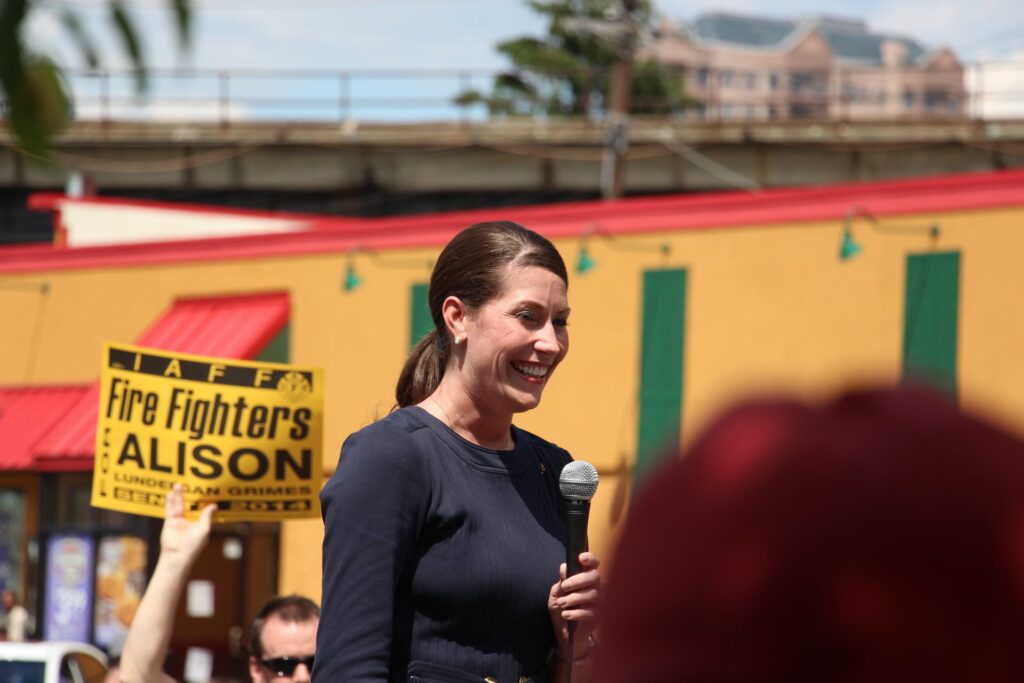Why more women don’t run for office
May 22, 2014
Washington Post – Tuesday’s primary races included a number of high-profile female candidates seeking national or statewide office. Some won: Alison Lundergan Grimes, for example, will now officially face Mitch McConnell in November’s general election for U.S. Senate. Others lost: Chelsea Clinton’s mother-in-law, former Congresswoman Marjorie Margolies, lost her attempt at the Democratic nod for a suburban Philadelphia House seat.
Yet either way they did something a new report released Wednesday shows how difficult it can be for women to do: run for a government seat. The report examines the challenges women face when they decide whether or not to run in the first place, the gender stereotypes and obstacles they confront both on the campaign trail and once they try to govern, and the reasons more don’t seek higher office or think of politics as a long-term career path. In a survey of state legislators that was part of the report, just 35 percent of the female legislators who responded said they considered politics a career. And only 18 percent said they had seriously considered running for higher office.
The report was released by Political Parity, a nonpartisan organization working to increase the number of women in Congress and in the governor’s mansion, with funding through former ambassador Swanee Hunt’s grant-giving group Hunt Alternatives. The report combines both a quantitative survey of 171 female state legislators done by Lake Research Partners and Chesapeake Beach Consulting, as well as interviews done by the Institute for Women’s Policy Research (IWPR) with 60 female candidates, officeholders and congressional staff members.
Currently, women make up 18.5 percent of House seats and 20 percent of U.S. Senate seats, and are the governors in five states. Yet one of the report’s key takeaways is that the biggest barriers to running for national office are not family demands. Rather, they’re fundraising requirements and party support. While women in the two studies cited the difficulty of work-life balance and being apart from family while in Washington or on the campaign trail, they ranked well below other obstacles to advancing their political careers.
Instead, women in the studies focused attention on the fundraising demands for national or statewide office and the lack of support they received from political parties. While just under 50 percent of the respondents said their parties encouraged male and female candidates equally, roughly 45 percent said they encouraged men more. Hardly any said women have the upper hand.
“There was a fair amount of finger pointing at the political party structure,” says Heidi Hartmann, IWPR’s president. “It is very, very difficult to get named. You kind of need to know that such and such a job will be coming up in four to five years and need to start positioning yourself early and start getting to know the party’s power brokers. They’re just much more likely to name men and think of men.”
Fundraising, meanwhile, was listed as the biggest barrier to running for higher office, with two-thirds of women saying it is difficult to raise the money needed to run effectively and nine in ten women saying fundraising influences their decision to try for a national or statewide seat. In the quantitative survey, the majority of state legislators — the traditional recruits for higher office — said they had never raised more than $100,000 in any capacity, far lower than the kind of money needed for a national or gubernatorial race.

